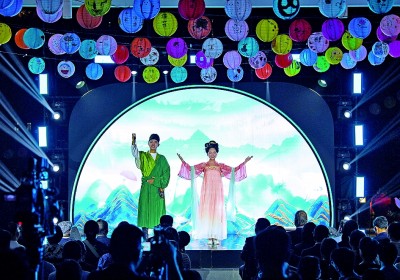Embedded in a nation’s belief and life, the cultural traditions have become the inner temperament of a nation through the daily upbringing and education of each generation. However, because of the history of colonial domination in Hong Kong, the inheritance of Chinese excellent traditional culture has experienced a lot of challenges and difficulties. What’s more, the educational biases also caused a weak sense of patriotism and insufficient cultural identity in part of Hong Kong young people.
Due to the suspension of the traditional culture’s inheritance, it’s not an easy thing to advance and enrich Chinese excellent traditional culture in Hong Kong, what we need to do is work hard and strengthen the leading role of policies in the fields of public policy, government finance, and so on.
First, we need to do a series of analyses of traditional culture. Let’s look at Tao and skill separately. Filial piety, fraternal duty, loyalty, faith, propriety, righteousness, integrity, and shame are the ethical carries of the excellent traditional Chinese culture, which can be continued and developed through the reading of scriptures and history. But the skills of traditional culture such as skills and crafts, folklore, arts, and so on can mostly be realized by concrete life and creation. When it comes to culture, we don’t distinguish the Tao and the skill, but Chinese people often place more value on Tao. When we watched the Peking Opera Single Sword Feast, although we liked its stage, singing, costumes, and actors, it was Guan Yunchang's loyalty and bravery that we applauded for. Getting this point, we can easily understand the problems we will meet and the path we need to take when inheriting and developing the Chinese excellent traditional culture in Hong Kong.
In recent years, the Hong Kong Special Administrative Region government and civil society have done a lot of work on folklore activities, such as revitalizing Cantonese Opera, holding dragon boatraces and Baozi mountain scrambling races and going to the Temple Fair, and so on. To realize the goal of “China and foreign cultural and artistic exchange center” raised by Outline of the Fourteenth Five-Year Plan, Hong Kong needs to focus more on the inheritance and creation of folk art. In addition to working better at the skill aspect, we should pay more attention to the development of the cultural heritage of the Tao.
The spirit of culture has to be passed on through education. In recent years, the language textbooks of mainland schools have included a large number of literary texts and ancient poems, from which students can appreciate the teachings of Confucius and Mencius, the elegance of the Classic of Poetry and Li Sao, as well as the glory of Chinese civilization. However, with the major reform of the curriculum, the education authorities in Hong Kong have not only substantially reduced the number of literary texts and ancient poems in language textbooks, but also changed the requirements of the language subject examination by abolishing the compulsory examination on model texts and contextual appreciation, and only examining the analysis of language structures. In this way, the tradition that uses the literature to convey Tao is completely overturned, as a result, the generation that grew up after the reunification of Hong Kong was unable to strengthen the cultural awareness and identification through our famous texts. The reading process, which was originally meant to promote people’s mental health and rich people’s personality, has turned into a pile of dry words that few people would read them.
In recent years, with the reorganization of education in Hong Kong, the problems of the Liberal Lessons that existed in the past have been effectively rectified, and the newly-established thesubject of Civic and Social Development focuses more on fostering students’ sense of identity, belonging, and responsibility towards country and nation. The subject of Chinese History has also become a separate compulsory subject in junior secondary schools, and the students can study and understand Chinese history and culture systematically. However, the proceeding of the reform on Chinese still needs to be improved. The subject of Chinese is an important embodiment of excellent traditional culture, and also an important way to help teenagers organize their thoughts under the mindset of their native language, build good characters, and strengthen the identification of culture. The author suggests that the process of the subject of Chinese needs to be advanced, and the proportion of classical essays, literary texts, and ancient poems in textbooks needs to be increased. At the same time, he also suggested that etiquette, calligraphy, and traditional martial arts should be allowed to join the subject of moral, physical, and arts education. It’s not just performances or competitions that are held among a few interested students, but about enhancing a universal and coherent education process, so that all the kids could have the opportunity of imbuing in traditional culture.
Hong Kong has a great responsibility to inherit and develop excellent traditional culture, with the primary objective of building up the patriotic spirit, identity and cultural confidence of Hong Kong people, and to continue to enhance the cultural depth of Hong Kong under the positioning of developing a center for cultural and artistic exchanges between China and the rest of the world. We are eagerly hoping that Hong Kong to keep its cultural roots and walk in the same direction as the current pace of the motherland in building a modern civilization for the Chinese nation.
